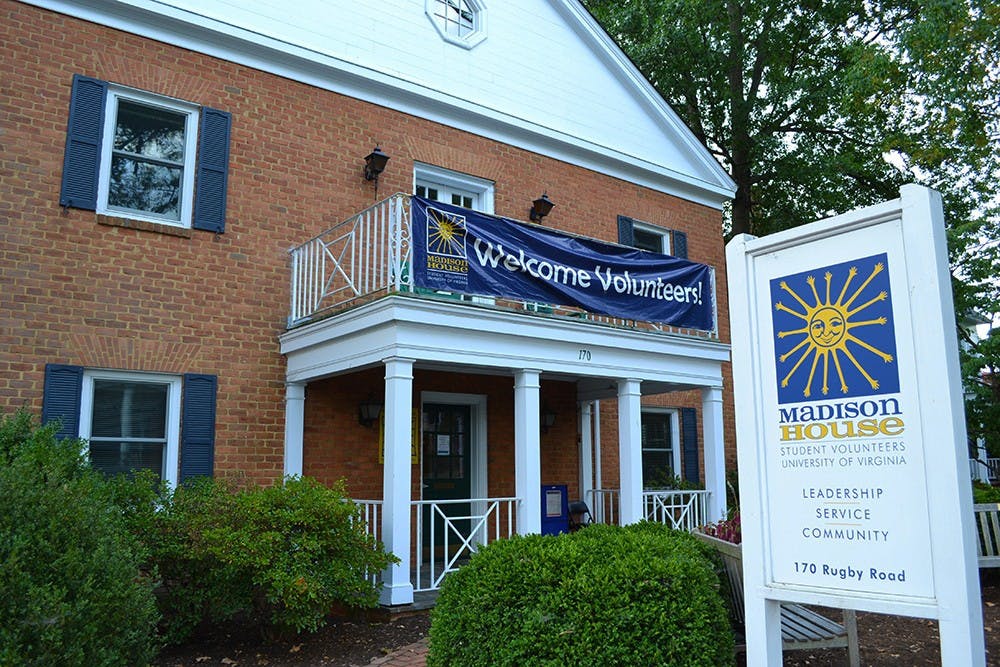In April 2015, the University’s Response Working Group issued a report to the President’s Ad Hoc Group on University Climate and Culture with recommendations on how the University can better respond to sexual violence and support victims and survivors.
Several of the recommendations have been implemented, such as investing in Student Health and Counseling and Psychological Services programs to support sexual assault survivors and provide more screening and treatment services, while others, such as the implementation of a one-credit course on sexual and gender-based violence, are still under consideration.
One recommendation the Working Group considered was investigating the 2-1-1 Virginia line as a potential community resource. It received both opposition and support from the working group.
2-1-1 Virginia is a phone number provided by the Virginia Department of Social Services that connects callers to free information about community services.
Trained professionals answer the calls and suggest further resources for callers by using a database of health and human services for the state.
Franklin Dukes, chair of the Working Group, said 2-1-1 was an idea the group considered but was not a final recommendation.
The system has a resource database of over 6,000 agencies with approximately 18,000 individual programs, 2-1-1 Virginia Director Robert Morrow said. The dialing code has been in operation for about 10 years.
“We operate 24/7, 356 days a year with trained specialists handling inquiries by phone and email, as well as walk-ins at our two physical sites in Roanoke and Lynchburg,” Morrow said in an email statement.
Services include child care referral, domestic abuse programs, family counseling, homeless services, legal assistance, mental health care, substance abuse programs and suicide prevention.
Gail Harris, director of the Virginia Office on Volunteerism and Community Services, said sexual assault resources are linked to 2-1-1 Virginia for all known resources where providers are willing to enter their program information and keep it current.
“2-1-1 is a valuable resource to everyone in Virginia and handles about 120,000 calls per year,” Harris said in an email statement.
The three-part recommendation considered by the Working Group advocated working with local sexual assault and domestic violence support resources to update 2-1-1 Virginia as it pertains to the Charlottesville area, communicating with the State Director to obtain additional information about promotion at the University and including a description of 2-1-1 Virginia in print and online media at the University.
According to the Working Group’s report, there was “substantial concern” with the recommendation because “2-1-1 includes information not related to prohibited conduct of Sexual Assault, Sexual Exploitation, Intimate Partner Violence, Stalking, Sexual or Gender-Based Harassment and retaliation, it may be distracting to students seeking quick answers.”
Because 2-1-1 is not controlled by the University, the report also showed concern that “the information related to prohibited conduct may be altered in ways not desired by the University.”
In the report the group also considered the possibility of creating a three-digit number for information and access to resources like reporting. However, the difficult process of securing a three-digit number made it an infeasible option to pursue.
Currently, other hotlines exist in the University community to serve the needs of students.
The Sexual Assault Resource Agency, or SARA, provides 24/7 hotline services and free confidential services to clients, with clinicians available to answer questions and provide immediate help.
SARA Director of Community Outreach Sheri Owen said the organization is not a mandated reporting agency.
“It is completely up to the survivor if they want to report the assault or not,” Owen said in an email statement. “We provide clinical support, advocacy support and legal advocacy support to survivors, men, women and children.”
Owen said SARA is a referral option for anyone at the University, as the agency works closely with University Police Department, the Maxine Platzer Lynn Women’s Center, the Elson Student Health Center, the Office of the Dean of Students, the President’s Office and the Title IX Office.
“Any resource available to students is good if it is staffed appropriately and students feel safe using it,” Owen said. “The number of student groups we have worked with recently have communicated that there is not a safe space at the University where they feel they can go and confidently talk to someone. We also have been told that there are many sexual assaults that are not being reported because people don’t feel there is a safe space to report.”
In addition to their work, SARA helps to train volunteers at the Madison House help line.
The Madison House help line is a 24/7 student-operated, confidential telephone service for which volunteers are trained to listen to callers with a wide range of issues.
Publicity Program Director Alex Rodriguez said no issue is too big or too small, and students call in to discuss issues like divorce, schoolwork and sexuality. Volunteers are also trained to handle calls related to sexual assault.
“Our volunteers are trained to handle people who are victims of sexual assault,” Rodriguez said. “We’re non-judgmental and make the resources aware to them to help them figure out if they want to seek these resources.”
Depending on the case, volunteers can refer callers to SARA, CAPS and other resources for victims of domestic or sexual assault.
“We go to a competitive university where everyone wants to do well, [so] a lot of people have trouble asking for help because it might make them seem weak,” Rodriguez said. “They might not want to go to their friends or professors or parents, so we’re helpful in that we’re anonymous and confidential. They never know who they’re talking to because volunteers are anonymous and we don’t know the people on the other side of the line so it gives them a lot of comfort.”
The University also offers a “Dean on Call” service, which provides 24-hour crisis management services to students.







